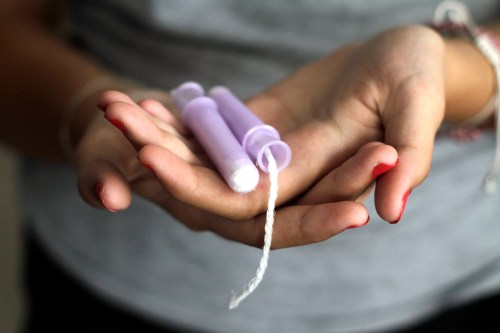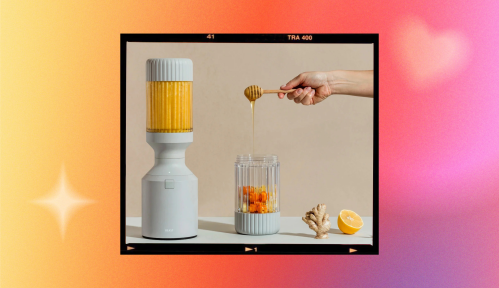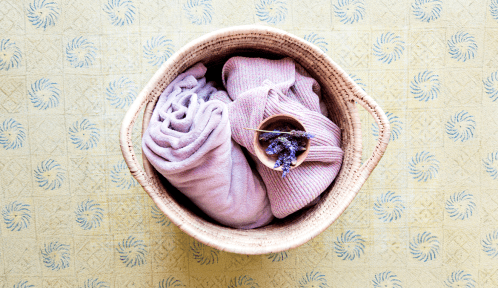Our editors independently select these products. Making a purchase through our links may earn Well+Good a commission
When it comes to expiration dates, most people think of grocery items like milk, cheese, and bread—in other words, things that can grow mold and cause health issues if consumed after they’ve gone bad. Over the past few years, though, the topic of expiration dates has extended into the health and beauty markets, as well, prompting folks to pay closer attention to the dates printed on the bottom of everything from their protein powder to tubes of sunscreen. Still, some items still get overlooked. For example, do tampons expire? Shocking as it may seem, the short answer is yes.
Experts in This Article
While the Food and Drug Administration (FDA) doesn’t require expiration dates for tampons, board-certified gynecologist Somi Javaid, MD, says that, in general, the tampons are considered usable for up to five years. Of course, without clearly labeled expiration dates, it can be difficult to keep track of that timespan. And that’s precisely why it’s important to know how to tell if a tampon has expired.
Do tampons expire?
Despite the FDA not requiring expiration dates on tampon boxes, Dr. Javaid says that many FDA-cleared tampon brands do have two dates printed somewhere on the box: the date of production and expiration. Some consumers might find this odd, given tampons aren’t a consumable product, but remember: tampons are made of a variety of ingredients and are specifically designed for absorption.
“Tampons are comprised of cotton, rayon, or a blend of both,” Dr. Javaid explains. “Depending on how and where tampons are stored, they absolutely can grow mold due to their composition.” That’s because, as she points out, cotton is a natural fiber and is susceptible to mold—especially if stored in a warm humid environment—because it can easily absorb that moisture and become a breeding ground for bacteria.
How to properly store tampons
Let’s be real, tampons aren’t cheap. As such, it’s important to know how to properly store them so that your tampons don’t expire before their general shelf life is up.
“They should be stored in a cool dark place and kept in the original packaging,” Dr. Javaid says.
Now, this is where things get interesting because, if you’re like most people with periods, you likely store your tampons in the bathroom, where they’re within arms reach of where you need them most. The problem is, bathrooms are one of the most humid areas in the home. With this in mind, if you insist on storing your tampons in the bathroom, it’s best to do so within an air-tight container. Otherwise, consider storing your backstock in a less humid space, like a closet.
In addition to storing your tampons properly in your home, it’s important to keep their composition in mind when on the go, too. After all, pretty much everyone with a period has thrown a tampon in their bag at some point or another, only to fish it out months (or years) later when desperately in need. With this in mind, board-certified gynecologist Staci Tanouye, MD, says that it’s important to always inspect your tampons prior to insertion. When doing so, make sure that the packaging is intact—if it’s not, it’s not worth using, as moisture, mold, and bacteria could have made their way into the product. If the packaging is intact, however, then the next step (if you’re working with a tampon that you’re unsure of the date—like, say, out of a random purse, lent from a friend, or out of a bathroom dispenser) is to take note of any stains or smells. If the tampon exhibits either, Dr. Tanouye, who is a U by Kotex® partner, says it’s best not to use it. “Regardless of the tampon you end up using, remember to always change your tampon before eight hours of use,” she says.
Why you shouldn’t use expired tampons
As if mold isn’t enough to deter you, allow us to be even more clear. If old, mold-ridden tampons are inserted, Dr. Javaid says that symptoms like itching, irritation, and discharge can arise. If they do, she says to remove the tampon immediately. “If the symptoms do not resolve after removing the tampon, contact your health care provider,” she advises.
Although most people buy tampons when they need them and thus use them quickly thereafter, it’s important to know how to store tampons in the event that you like to have a backstock of period supplies, or if you happen to misplace a box only to find it years later.
Generally speaking, the most important thing to know about the topic of tampon expiration dates is that it’s less about how long ago you purchased your last box of tampons and more about how you’ve stored them since stocking up. While storage at home is a bit more obvious (given the space), bag storage is equally as essential. As such, when tossing tampons in your backpack, tote, or purse, consider putting them in their own pouch.
Sign Up for Our Daily Newsletter
Get all the latest in wellness, trends, food, fitness, beauty, and more delivered right to your inbox.
Got it, you've been added to our email list.











